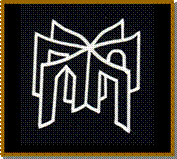Estudios previos cursados y género de los maestros de primaria en formación: efectos sobre la resolución de problemas / Pre-service primary teachers' gender and studies previously undertaken: effects on problem solving.
Palabras clave:
maestro de primaria en formación, resolución de problemas, género, estudios previos cursados / pre-service primary teachers, problem-solving, gender, completed previous studies.Resumen
Resumen:
Este trabajo analiza la influencia del género y los estudios previos cursados en la resolución de problemas. Se utilizó un diseño experimental con dos variables independientes (género y estudios previos) y una variable dependiente (puntuación en los problemas). Se administró un cuadernillo con dos problemas de diferente estructura a 66 estudiantes de tercer curso del Grado de Maestro en Educacion Primaria de la misma Facultad (Facultad de Magisterio de la Universidad de Valencia, España). Los resultados de los análisis de varianza simple muestran que: a) los estudiantes de sexo masculino resuelven el problema difícil con más éxito que las estudiantes, b) los estudiantes que han cursado bachillerato no resuelven los problemas significativamente mejor que los que no lo han cursado y, c) los estudiantes que siguieron un itinerario en 4º de la ESO con Física y Química resuelven significativamente mejor los problemas que los restantes.
Abstract:
This study analyses the influence of gender and studies previously undertaken on problem-solving. An experimental design was used with two independent variables (gender and studies previously undertaken) and one dependent variable (scores in the problems). A booklet containing two word problems that differ from each other in structure was administered to 66 third-year pre-service primary teachers from the same Faculty (Faculty of Teacher Training, University of Valencia, Spain). The results of the analyses of variance simple showed that: a) men undergraduate students solve the difficult problem more successfully than women undergraduate students, b) students who had completed post-compulsory secondary education do not solve the problems significantly better than the others, and c) students who had studied physics and chemistry in the tenth grade at high school solve the problems significantly better than the others.
Referencias
Brown, T.; McNamara, O.; Hanley, U.; Jones, L. “Primary student teachers’ understanding of mathematics and its teaching”, British Educational Research Journal, 25, 1999, págs. 299-322.
Gaigher, E. “Exploring the development of conceptual understanding trough structured problem solving in Physics”, International Journal of Science Education”, 29, 2007, págs. 1089-1110.
Halat, E. “Preservice elementary school and secondary mathematics teachers' Van Hiele and gender differences”, IUMPST: The Journal (Content Knowledge), 2008, publicación electrónica. www.k-12prep.math.ttu.edu [Fecha de consulta: 5-5-2011].
Hernández, O. “Errores cometidos por los candidatos a maestros al resolver problemas matemáticos”, Paradigma, 30, 2009, págs. 103-116.
Johnson, E. S. “Sex differences in problem solving”, Journal of Educational Psychology, 76, 1984, págs. 1359-1371.
Solaz-Portolés, J. J.; Sanjosé, V.; Gangoso, Z. “La investigación en resolución de problemas instruccionales. Efectos de variables del problema y de las variables cognitivas, metacognitivas y motivacionales del resolutor”, en El aprendizaje activo de la Física Básica Universitaria, J. Benegas, M C. Pérez de Landazábal y J. Otero (Eds.), Andavira Editora, Santiago de Compostela, 2013.
Taasoobshirazi, G. “An examination of gender differences in scientific problem solving strategies as students progress through an implementation of an Astronomy Multimedia Program”, Master dissertation, University of Georgia, USA, 2005, publicación electrónica. http://athenaeum.libs.uga.edu/handle/10724/8315 [Fecha de consulta: 6-7-2012]
Taplin, M. “Preservice teacher’s problem-solving processes”, Mathematics Education Research Journal, 10, 1998, págs. 59-76.
Tirosh, D.; Tirosh, C.; Graeber, A.; Wilson, J. “Computer-based intervetion to correct preservice teacher's misconceptions about the operation of division”, Journal of Computers in Mathematics and Science Teaching, 10, 1991, págs. 71-78.
Turgut, M.; Yilmaz, S. “Relationship among preservice primary mathematics teachers' gender, academic success and spatial ability”, International Journal of Instruction, 5, 2012, págs. 5-20.
Valverde, A. G.; Castro, E. “Actuaciones de maestros en formación en la resolución de problemas de proporcionalidad directa”, en Investigación en Educación Matemática XIII, M. J. González, M. T. González y J. Murillo (Eds.), SEIEM, Santander, 2009.
Walding, E. S. “Sex differences in Chemistry problem solving”, Chemistry in Australia, 71, 2004, págs. 6-24.
Zhu, Z. “Gender differences in mathematical problem solving: A review of literature”, International Education Journal, 8, 2007, págs. 187-203.
Descargas
Publicado
Número
Sección
Licencia

Tejuelo se publica bajo una licencia Creative Commons Reconocimiento-NoComercial-SinObraDerivada 3.0 España.


.jpg)



